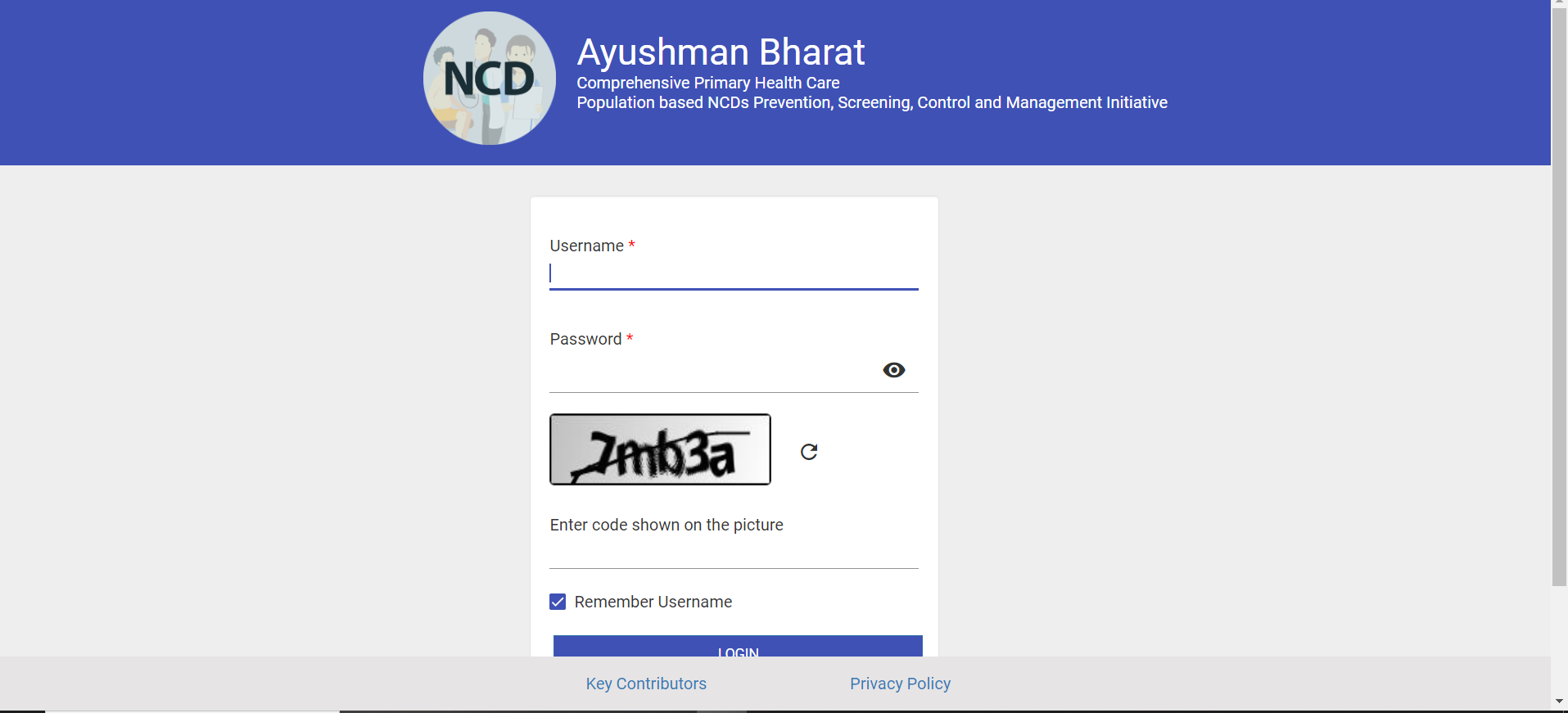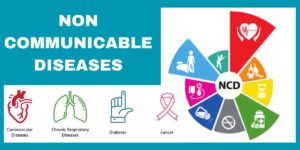The Comprehensive Guide to NCD Portals: Enhancing Healthcare in the Digital Age

Introduction
In today’s digital era, the healthcare industry is not exempt from the widespread adoption of technology to enhance capabilities and deliver better services to patients. One significant advancement is the development of Non-Communicable Disease (NCD) portals. These online platforms have revolutionized the way health professionals, patients, and caregivers manage chronic conditions. In this blog, we will delve into the world of NCD portals and explore the importance of NCD portal login systems.
Understanding Non-Communicable Diseases (NCDs)
Before diving into the specifics of NCD portal login, it is essential to understand what NCDs are. Non-communicable diseases (NCDs), also known as chronic diseases, are long-term health conditions that are not caused by infectious agents and do not spread from person to person. Examples of NCDs include diabetes, hypertension, cardiovascular diseases, cancer, and chronic respiratory diseases.
The burden of NCDs is significant in terms of health outcomes and healthcare costs. Managing these conditions often requires regular monitoring, management, and lifestyle modifications to prevent complications and improve the quality of life for those affected.
The Role of NCD Portals
NCD portals are web-based platforms designed to facilitate the management of chronic diseases. They serve as a central hub for healthcare providers, patients, and caregivers, enabling access to and sharing of crucial health information. NCD portals offer several vital features:
Health Records
Patients can view their medical records, including test results, treatment plans, and medication history, all in one place.
Appointment Scheduling
These portals allow patients to schedule and manage their medical appointments, making it more convenient for all involved.
Medication Management
Patients can receive reminders to take their medications and track their adherence, reducing the risk of missed doses.
Educational Resources
NCD portals provide information and resources to help patients understand their condition, treatment options, and necessary lifestyle changes.
Communication
Patients can communicate with their healthcare providers through secure messaging, ensuring their questions and concerns are addressed promptly.
Data Tracking
The portals collect data on patients’ health and can provide insights into disease progression and treatment efficacy for both patients and healthcare professionals.
The Importance of NCD Portal Login
Now, let’s explore the significance of the login aspect of NCD portals:
Security
NCD portal logins are crucial for maintaining the security of patients’ sensitive health information. Secure login credentials ensure that patient information is protected from unauthorized access, maintaining data privacy and compliance with healthcare regulations such as the Health Insurance Portability and Accountability Act (HIPAA).
Personalization
With a login system, NCD portals can tailor the experience to meet patients’ needs. Patients can view their records, receive relevant information, and communicate with their specific healthcare providers.
Data Integration
Patients can log into the portal and gain a comprehensive view of their health information. This can include data from multiple healthcare providers, making it easier to coordinate care and track progress.
Convenience
Patients can access the portal from the comfort of their homes, eliminating the need to visit a healthcare facility for routine tasks like scheduling appointments or reviewing test results.
Engagement
An NCD portal login system encourages patient engagement and self-management. Patients who are actively involved in their healthcare are more likely to adhere to treatment plans and make lifestyle changes that improve their health.
Efficiency
Healthcare providers can use login systems to streamline administrative tasks such as appointment booking, prescription refills, and referrals, allowing them to focus more on patient care.
The Future of NCD Portals
The development and widespread adoption of NCD portals mark a significant step in health management. As technology continues to evolve, we can expect to see even more advanced NCD portals that integrate wearable devices, AI-powered health assistants, and predictive analytics to provide more personalized, proactive, and effective services.
The Patient Experience
For patients, NCD portals are game-changers. They transform individuals from passive recipients of healthcare into informed and engaged partners. Here’s how NCD portal logins enhance the patient experience:
Access to Health Information
Patients can log into their NCD portal accounts and access their complete health records, including lab results, medical history, and treatment plans. This not only empowers patients but also promotes transparency in healthcare.
Improved Medication Adherence
Medication management features within the portal, such as medication reminders and refill notifications, help patients adhere to their prescribed treatment plans. This can have a significant impact on health outcomes and reduce the risk of complications.
Lifestyle Education
NCD portals offer a wealth of educational resources that help patients understand their condition and make informed decisions about lifestyle changes. This includes dietary recommendations, exercise plans, and stress management techniques.
Health Monitoring
Patients can track vital health metrics such as blood pressure, blood sugar levels, or weight based on their specific condition. They can easily share this data with their healthcare providers, facilitating timely adjustments to their treatment plans.
Communication and Support
Secure messaging and communication tools allow patients to ask questions, clarify doubts, and receive support from their healthcare providers and care teams. This can be particularly reassuring for patients managing chronic conditions.
Appointment Management
Patients can easily schedule, reschedule, or cancel appointments with their healthcare providers through the portal, reducing administrative hassle and improving access to healthcare.
The Healthcare Provider Perspective
NCD portals also bring several benefits to healthcare providers:
Efficient Workflow
NCD portal login systems streamline administrative tasks, allowing healthcare providers to focus more on patient care. Appointment scheduling, prescription refills, and test result management are all handled more efficiently.
Enhanced Care Coordination
For patients with multiple chronic conditions, NCD portals enable better care coordination. Different specialists involved in a patient’s care can access and update a shared record, ensuring everyone is on the same page regarding the patient’s health status.
Data-Driven Decision-Making
The portal’s ability to collect and analyze patient data provides healthcare providers with valuable insights into disease progression, medication effectiveness, and patient adherence. This data-driven approach supports evidence-based decision-making.
Reduced Administrative Burden
Handling patient inquiries, scheduling appointments, and renewing prescriptions can be time-consuming. Portals automate many of these tasks, saving valuable time for healthcare professionals.
Risk Reduction
By promoting patient engagement and self-management, NCD portals can help reduce hospital readmissions and emergency room visits. This ultimately lowers healthcare costs and improves patient outcomes.

The Future of NCD Portals
Looking ahead, the future of NCD portals holds tremendous promise. We can expect the following developments:
Integration with Wearable Devices
NCD portals will likely integrate with wearable devices, allowing patients to sync data from their fitness trackers, blood glucose monitors, and other health gadgets directly to their portal accounts for real-time monitoring.
Artificial Intelligence
AI-powered health assistants will provide patients with personalized insights and recommendations based on their health data. These virtual assistants will also help healthcare providers make more accurate diagnoses and treatment plans.
Telehealth Integration
NCD portals will seamlessly integrate with telehealth services, enabling patients to conduct video consultations with their healthcare providers through the portal. This is particularly relevant in the post-pandemic world, where telehealth has become a preferred option for many.
Predictive Analytics
Using historical health data, predictive analytics will forecast disease progression, enabling proactive interventions. This can help prevent complications and reduce healthcare costs.
Conclusion
NCD portals and their login systems have already made a significant impact on healthcare, providing secure, convenient, and personalized tools for both patients and healthcare providers. As they continue to incorporate innovative technological advancements, they will undoubtedly play an even more critical role in chronic disease management, ultimately transforming the healthcare landscape by improving patient outcomes and enhancing the overall healthcare experience.


